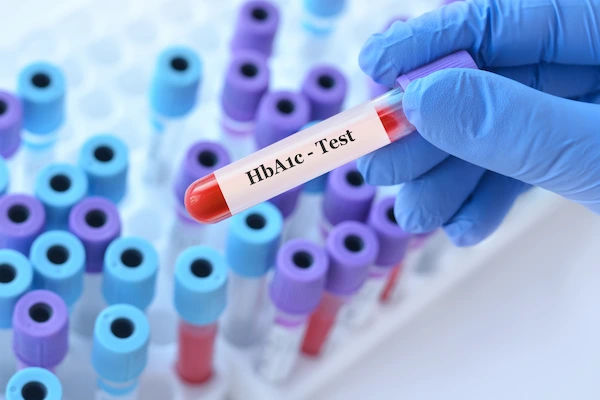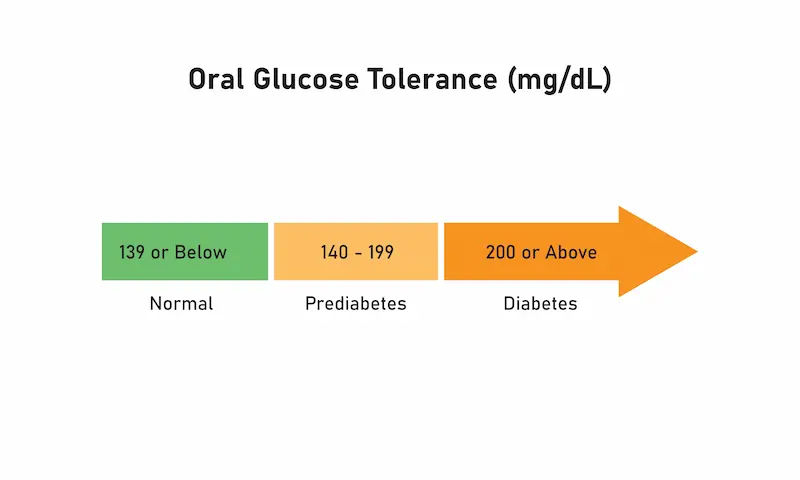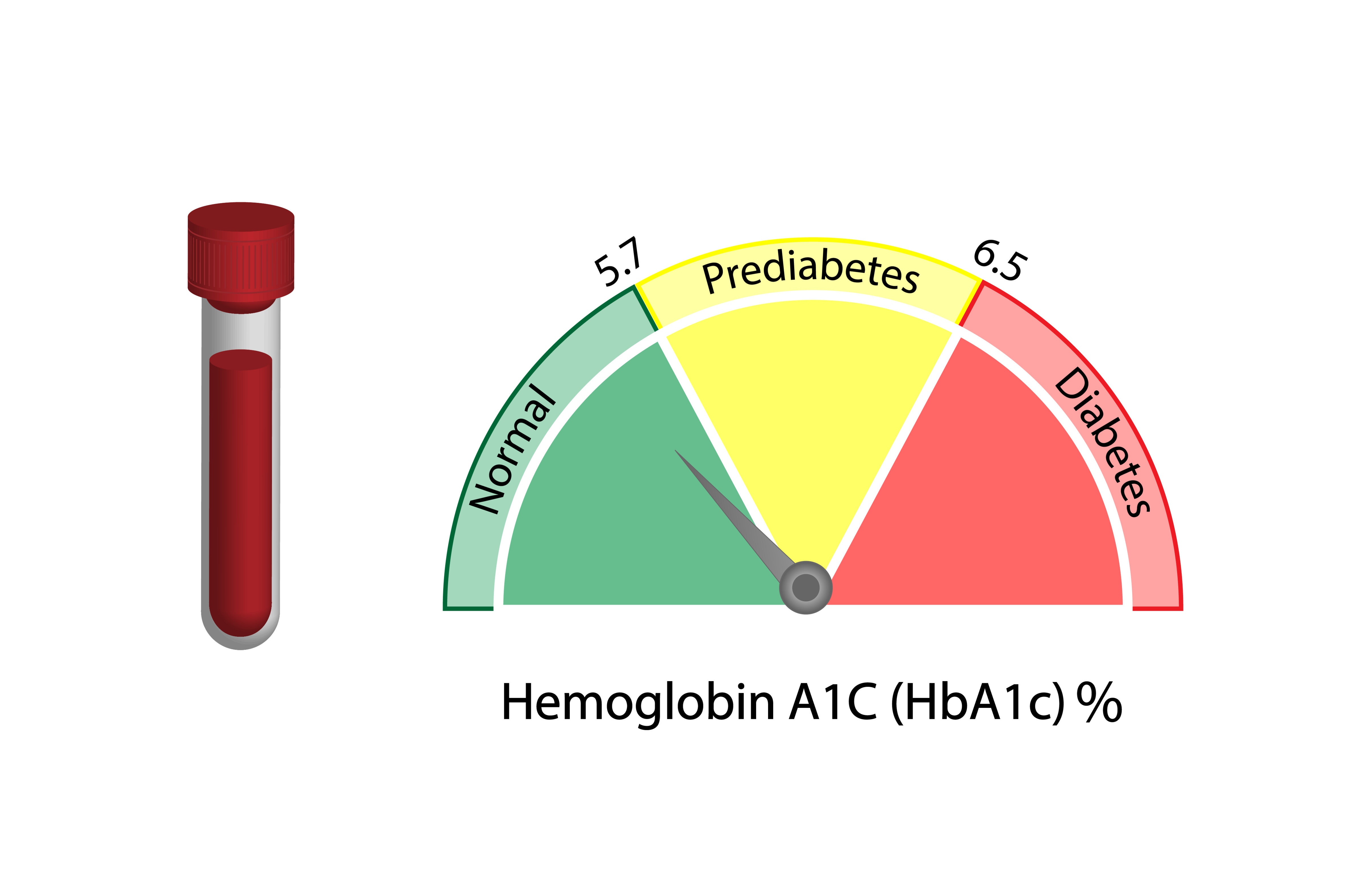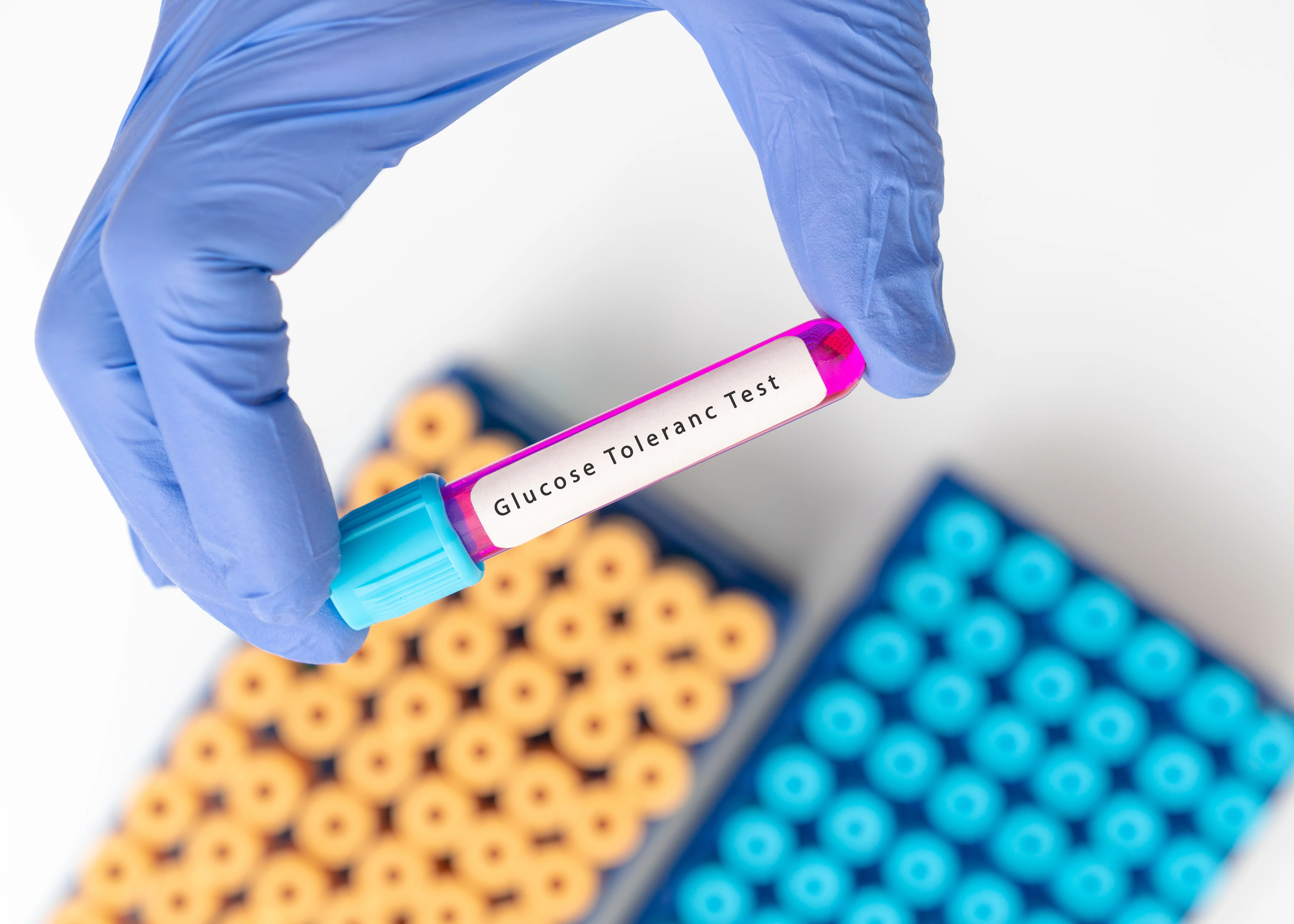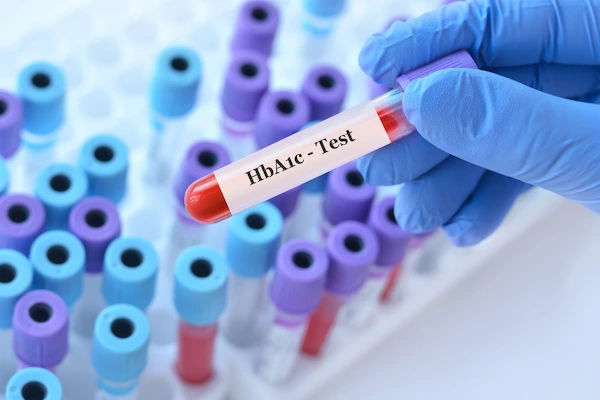When Should You Take an HbA1c Test? Ideal Timing & Frequency
Know the why, what, and how of the HbA1c test. Who and when to take it, how to prepare and what to do with the result. Learn about warning symptoms for a healthy body.

Written by
Last updated on 5th Aug, 2025

HbA1c testing is a cornerstone in diagnosing and managing diabetes, especially among adults aged 30 to 60 in India, where rising lifestyle-related disorders have made regular glucose monitoring essential. Whether you’re living with diabetes, at risk, or trying to prevent progression from prediabetes, understanding your HbA1c levels can provide vital insights into long-term blood sugar control. This simple blood test reflects your average glucose over the past two to three months, offering a more accurate picture than a one-time sugar check. In this comprehensive guide, we’ll explain when to take an HbA1c test, how often to check it, and how your results should guide treatment or preventive action.
Understanding the HbA1c Test
The HbA1c test, also called glycated haemoglobin, plays a vital role in managing diabetes. Unlike routine blood glucose monitoring, which shows moment-to-moment changes, the HbA1c test reflects your average blood sugar levels over the past 2 to 3 months. It measures the percentage of haemoglobin (a protein in red blood cells) that is coated with sugar (glycated).
The higher your average blood sugar, the higher your HbA1c result. This makes it one of the most reliable indicators of long-term blood sugar control, especially in individuals with type 1, type 2, or prediabetes. Whether you’re newly diagnosed or managing diabetes for years, understanding when to do HbA1c test and how often to check HbA1c can significantly impact your treatment outcome.
Why is the HbA1c Test Important?
The HbA1c test is a powerful tool in diabetes care, offering more than just a snapshot—it reveals how well your blood sugar has been managed over time. Here's why it's considered essential by doctors and patients alike:
- Detects diabetes and prediabetes early
- Monitors blood sugar control over time
- Helps doctors assess if treatment (medications, diet, or exercise) is effective
- Guides therapy adjustments
- Helps reduce the risk of complications such as kidney disease, heart issues, or nerve damage
It is particularly helpful for patients who may not be regularly monitoring their blood sugar or who experience fluctuating levels that finger-prick tests alone might miss.
When to Do the HbA1c Test?
Unlike fasting blood glucose tests, HbA1c testing does not require fasting and can be done at any time of the day. This makes it highly convenient, especially for working professionals, the elderly, and children.
You may need to get an HbA1c test if:
- You have symptoms of diabetes: frequent urination, extreme thirst, fatigue, or unexplained weight loss.
- You were recently diagnosed with diabetes or prediabetes.
- You’re undergoing diabetes treatment.
- You have risk factors like obesity, a family history of diabetes, PCOS, or a sedentary lifestyle.
- You’re pregnant and at risk for gestational diabetes.
Book your HbA1c test easily with home sample collection and certified labs from Apollo 24|7 here:
Book a HbA1c Test on Apollo 24|7
How Often to Check HbA1c?
The answer depends on your health status, blood sugar control, and treatment plan. Here are some criteria depending on which you should decide how often you should get an HbA1c done:
A. People with Diagnosed Diabetes
Every 3 months (Quarterly) if:
- You are newly diagnosed.
- Your current treatment is being changed.
- Your previous HbA1c results were above the target level (e.g. >7%).
Every 6 months if:
- Your blood glucose levels are well-controlled.
- You have no recent changes in treatment.
- Your last 2 or more HbA1c readings were stable.
B. People with Pre-diabetes
Annually if:
- You are maintaining a healthy lifestyle with controlled risk factors.
Every 6 months if:
- You have other coexisting risks like obesity or high blood pressure.
- Your lifestyle changes are ongoing, and monitoring is required to check reversal or progression.
C. People Without Diabetes (General Population)
Every 1 to 2 years during routine health check-ups or if you:
- Are above 40 years of age.
- Have a family history of diabetes.
- Are overweight, sedentary, or have PCOS.
Quarterly vs Annual Testing – Which Is Right for You?
Choosing between quarterly and annual HbA1c testing depends on your current health status and diabetes management goals. While more frequent testing is crucial for those newly diagnosed or undergoing treatment changes, annual checks may suffice for individuals with stable blood sugar levels or those at risk of diabetes. Here's a quick comparison to help you decide the right frequency:
Summary:
- Choose quarterly testing for early monitoring or treatment changes.
- Choose annual testing if your results have been consistent and your doctor agrees.
- Six-monthly strikes a balance for stable diabetes.
Ideal HbA1c Targets
The goal of diabetes management is to keep the HbA1c level within the target range.
Note: Always consult your physician for individualised targets based on age, pregnancy, heart health, and lifestyle.
Symptoms That Warrant Immediate Testing
You should consider getting an HbA1c test sooner if you experience any of the following:
- Blurred vision
- Frequent urination (especially at night)
- Fatigue or constant tiredness
- Wounds that are slow to heal
- Recurrent infections (skin, gums, UTI)
- Numbness or tingling in hands and feet
These symptoms may suggest high blood sugar and warrant immediate medical attention.
Preparing for an HbA1c Test
- Most HbA1c tests require no special preparation.
- However, here are a few practical tips:
- No fasting needed: Eat normally before the test.
- Continue regular medications unless advised otherwise.
- Inform the lab if you have anaemia, recent blood transfusion, or kidney disease. These may affect results.
- Stay hydrated to make blood draw easier.
What the Results Mean?
Interpreting your HbA1c results correctly is key to understanding your blood sugar control over time. Each result falls within a specific range that indicates whether your glucose levels are normal, borderline, or diabetic. Here’s a simple breakdown to help you understand what your HbA1c percentage reveals about your current health status and whether treatment adjustments may be needed:
Get These Tests If You've Diabetes
Get These Tests If You've Diabetes
What to Do After You Receive the Results?
Once you receive your HbA1c test results, it’s important to take timely and appropriate steps. Understanding the numbers is only part of the process, what you do next matters just as much. Whether your levels are within range or higher than expected, here’s how to respond and stay on track with your diabetes care plan:
1. Consult Your Doctor: Do not self-diagnose. Your doctor will interpret the result considering your medical history and overall health.
2. Review Treatment Plan:
- High HbA1c: You may need to start or change medications.
- Normal HbA1c: Stay on track but continue monitoring.
3. Track Lifestyle Factors: Diet, exercise, and weight control have a huge impact on blood sugar trends. Follow evidence-based guidance.
4. Plan Your Next Test: Book the next test based on your doctor's recommendation. Don’t skip follow-ups.
HbA1c Testing Made Easy with Apollo 24|7
Apollo 24|7 offers multiple options for testing with home sample collection, NABL-accredited labs, and same-day reports in most cities.
Available Test Options:
HbA1c Standalone Test: Ideal for diabetics and pre-diabetics looking to monitor glucose control.
Diabetes Panel Basic: Includes HbA1c + fasting glucose + post-prandial sugar
Diabetes Panel Advance: Includes HbA1c, blood sugar (F, PP), kidney function, lipid profile, urine microalbumin & more
Conclusion
Knowing when to do HbA1c test and how often to check HbA1c empowers you to manage or prevent diabetes with confidence. Whether you're newly diagnosed, managing long-term diabetes, or at risk due to lifestyle or genetics, regular HbA1c testing provides clarity, direction, and control. Don’t delay and monitor your health proactively with Apollo 24|7’s convenient lab testing.
Book Your HbA1c Test Now
